On Feb. 24, 2022, I awoke at five in the morning to the sounds of shelling. It was on that morning that Russia launched a full-scale invasion on Ukraine. To protect ourselves by putting as many walls as we could between our bodies and the outside world, me, my girlfriend Violeta “Violet” Ziborova and our cat Masya left our apartment to hide in a small shared storage room in the hallway. We taped a small chest of drawers to the walls to give ourselves even more protection. The only other things we had in that cramped space were a small water heater and a few blankets. To sleep at night, I used my backpack as a pillow. Violet and I kept our winter boots and our coats on 24/7 so that we could flee at a moment’s notice. We put Masya on a special cat leash so she would always be attached to us. She sat in random corners and paced around all day, clearly extremely distressed by what was happening.
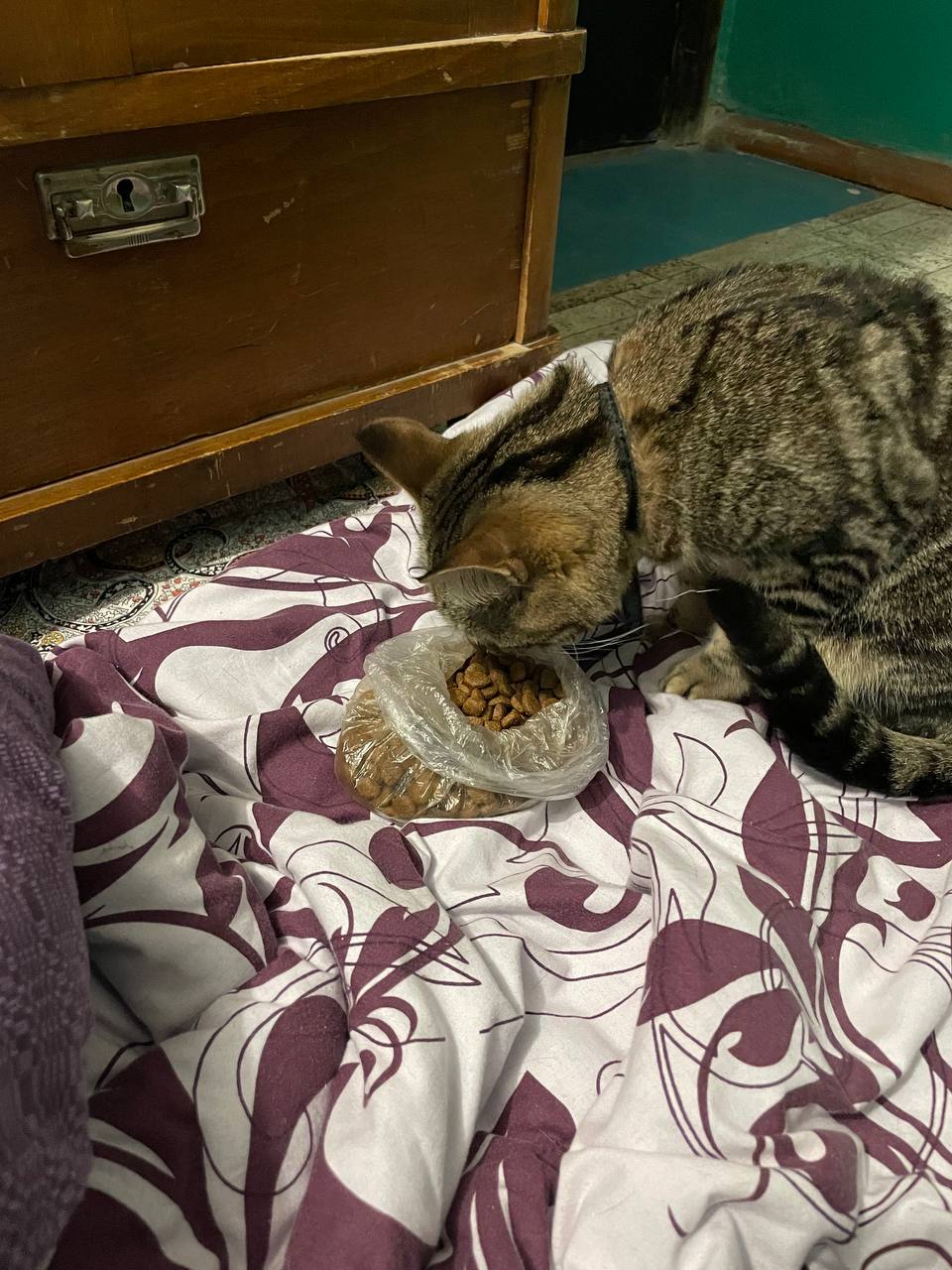
Credit: Viktoriia Kovalenko
The terrifying sound of shelling was a constant presence in our lives. During pockets of time when our fear was less intense, we re-entered the apartment to have a shower. When we wanted to eat, we rushed directly to the fridge to grab something and ran back because we were so afraid to stand around when it was so loud outside. Masya ate out of a plastic bag packed with cat food that we brought with us in hiding. When she wanted to use the litter, she would tap us with her paw and we would let her back inside the apartment. As soon as she was done, we would immediately take her back into the storage room.
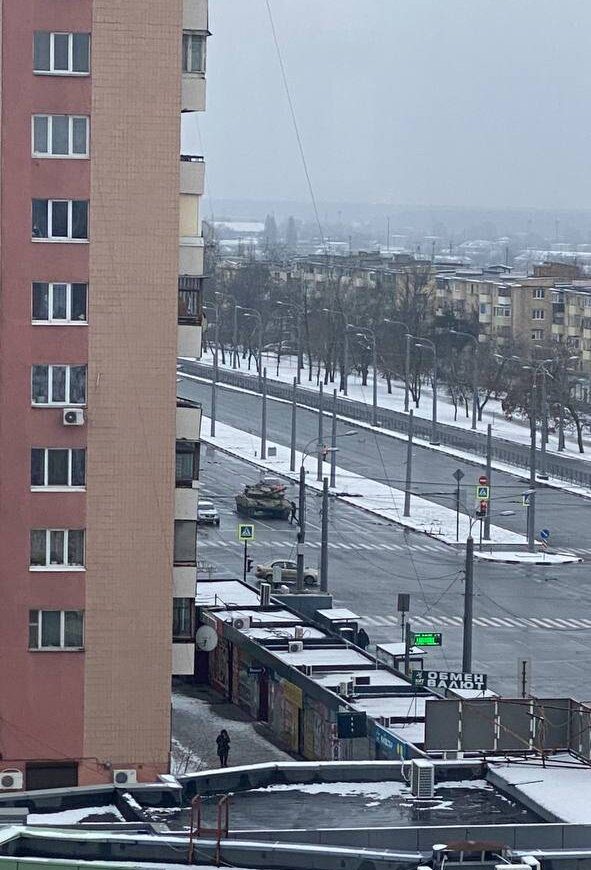
Credit: Viktoriia Kovalenko
On our fifth day of hiding, there was a power outage in our building. So we used candles. We couldn’t cook anything, so we didn’t have anything to eat. We didn’t leave the building for almost a week because it was dangerous. Our bank cards were not working and we didn’t have any cash because we had gotten used to online payment systems. So there was no use in going to the shop to buy food. Not that there were a lot of products in stock anyway, since people panicked and bought everything they saw. The one time we wanted to go out, we saw a tank rolling toward our building from our balcony and quickly scurried back inside. It was surreal to see a tank moving down a street that was usually brimming with cars and people.
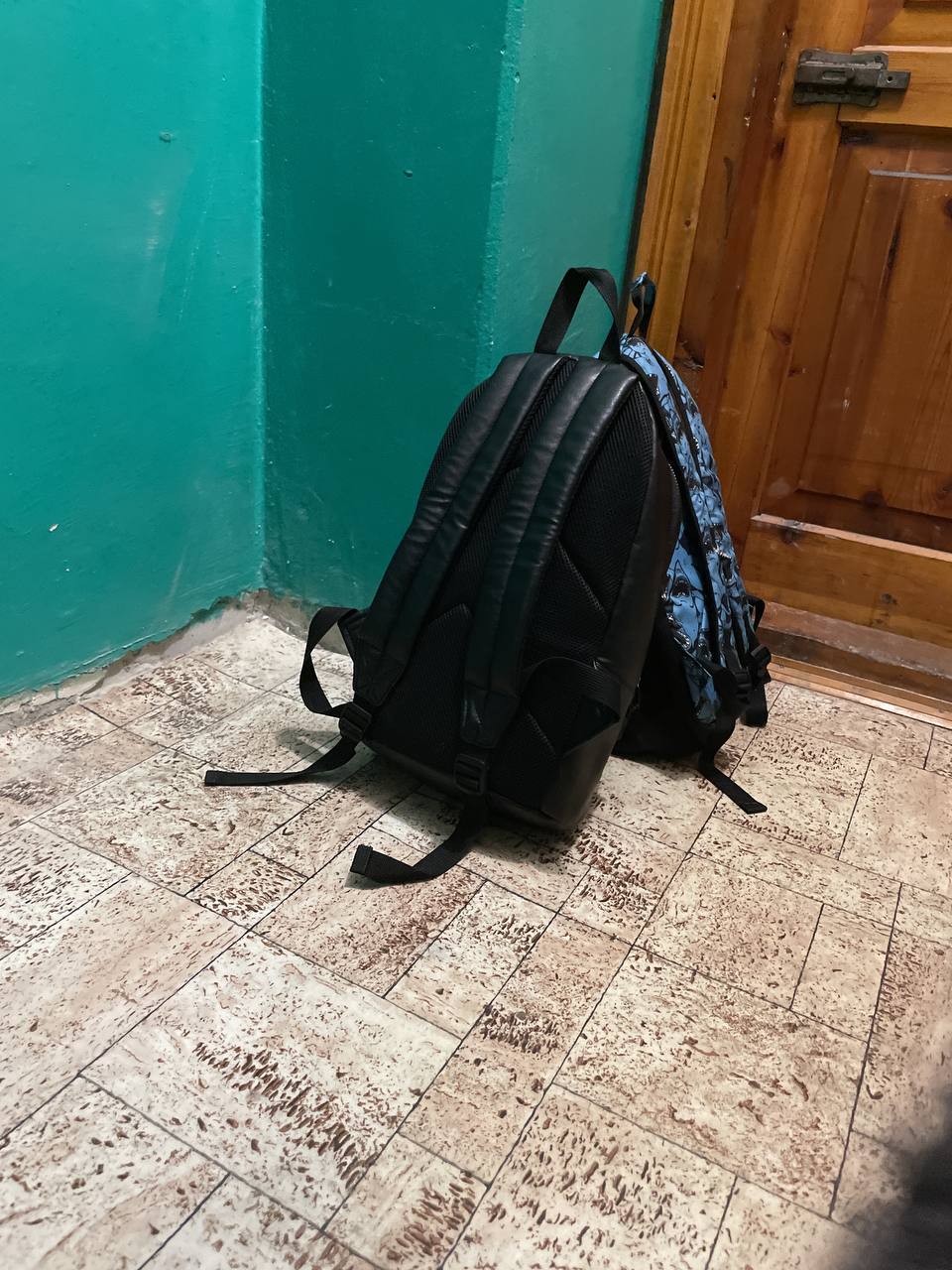
Credit: Viktoriia Kovalenko
It was after the power outage that Violet and I decided to leave Kharkiv. We packed some essentials—medical documents, important paperwork, snacks, cat supplies for Masya, one laptop that Violet could use for work, some survival gear—into two backpacks and left everything else behind, including any clothing we weren’t already wearing. We didn’t know if border agents would allow us to cross the border with Masya, but we couldn’t bear the thought of leaving her behind. In the middle of the devastation of war, all we had was one another and our small cat.
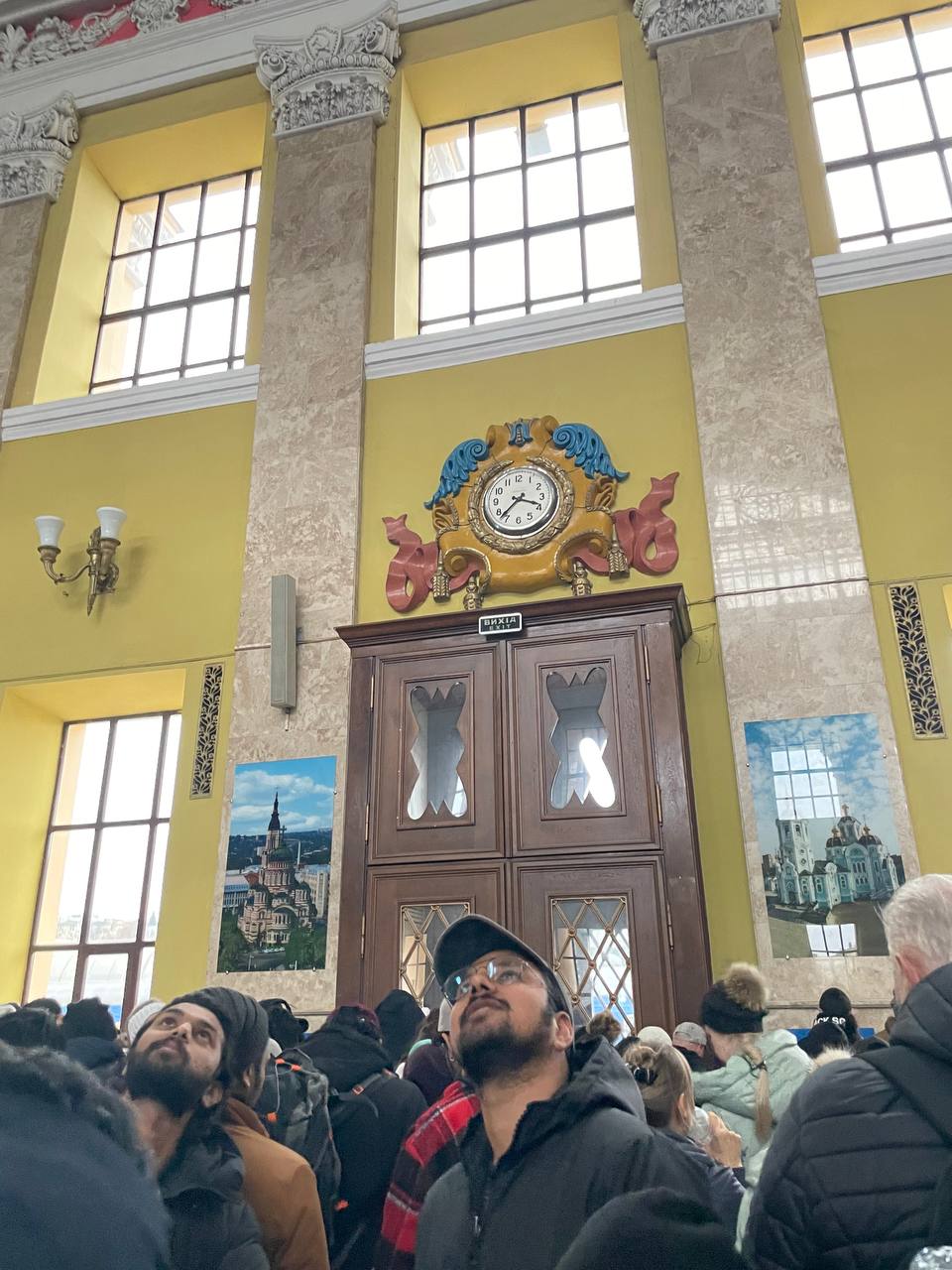
Credit: Viktoriia Kovalenko
When we got to the train station, it was packed full. It wasn’t supposed to be like that. But people were panicking and everybody was trying to save their own life. Trains ran on unpredictable schedules and were often late. It was extremely difficult to board amidst the chaos. We missed the train we wanted, so we decided to board any available train that would take us to the more stable western part of the country. After a long wait, we were some of the last people who made it on our particular train, as they prioritized women, children, the elderly and students. We spent more than 24 hours in transit, as the train had to take huge detours to avoid shelling. During a layover in Lviv, volunteers gave us snacks and hot tea. We could finally eat and charge our phones after an exhausting day of travel. We contacted our parents to let them know that we were still alive. The volunteers also gave us some tape to fix the cage Masya was in, which broke during our journey. But even here, more than 800 kilometres from our home, the sounds of shelling never left us. They were a constant reminder that at any point during our escape, we could be killed.
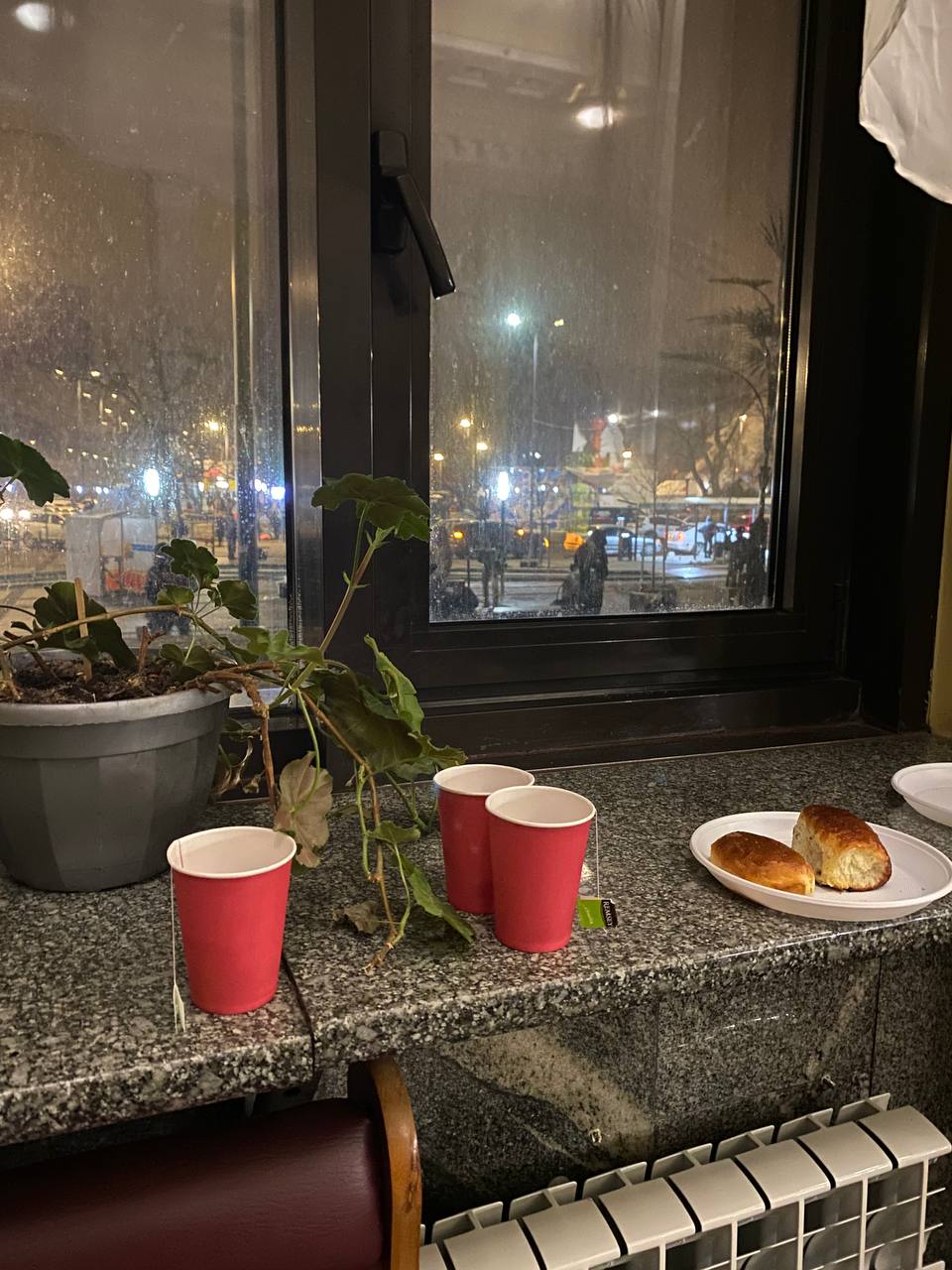
Credit: Viktoriia Kovalenko
At long last, we reached our destination, the Romanian border. Under a shining sun, we walked across the border into Romania with Masya safely in her cage. We were relieved that our little family had made it out of Ukraine, alive and still together. After bouncing around several cities for two weeks, we settled in a small flat in Bucharest that we rented from a man named Dan. He was a kindly soul who brought us food and cat supplies. When we told him we wanted soup, he bought us broth and a new pot to cook in. We were extremely touched by the gesture we had not expected at all.
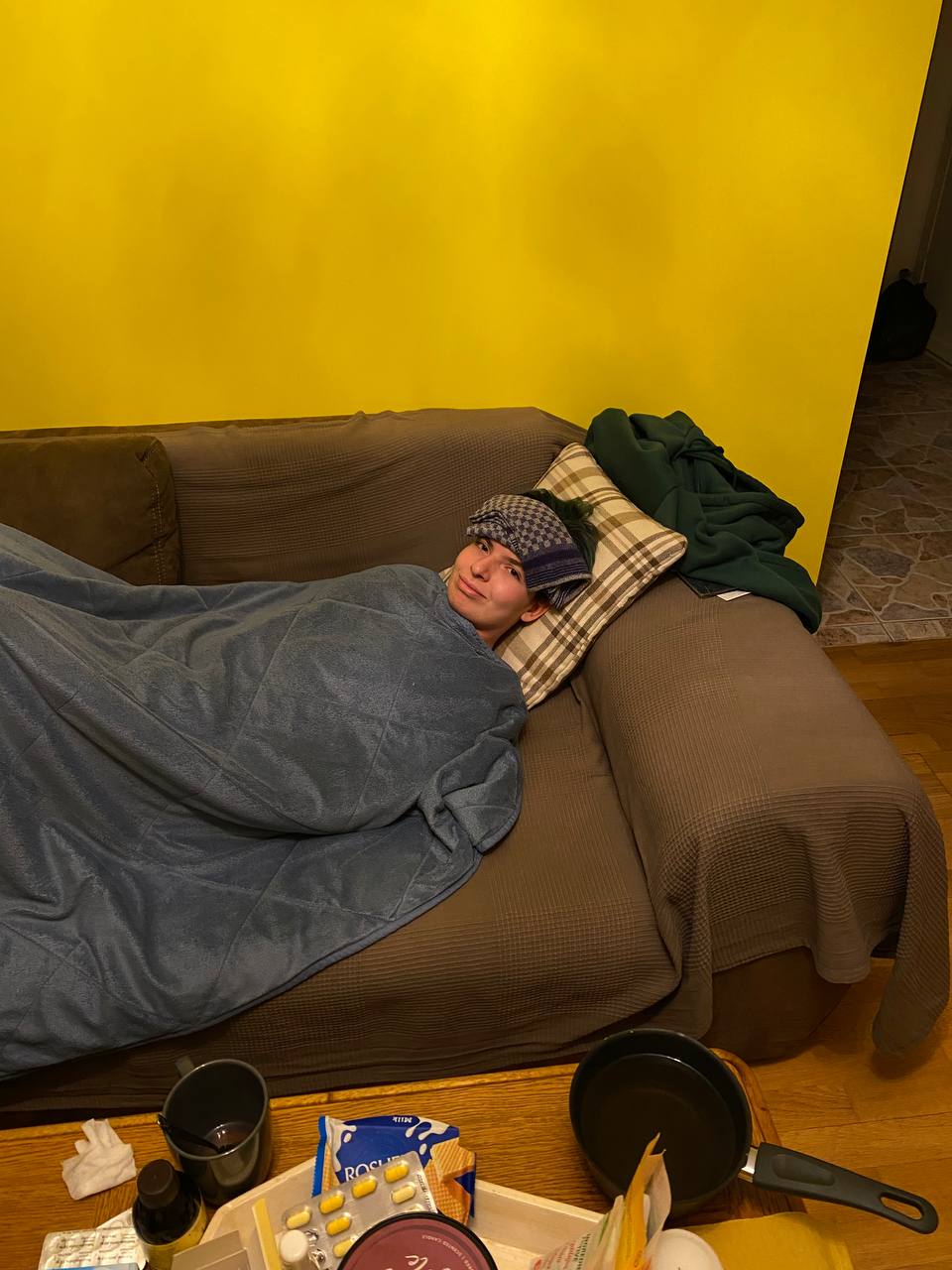
Credit: Violeta Ziborova
Living in Bucharest was challenging at times. When I developed a high fever, many doctors refused to treat me because I couldn’t speak Romanian. After one week without any medical care, I had to call emergency services to get medical treatment, not knowing how I would communicate with the healthcare professionals. It was a terrifying experience. The ambulance came to pick me up to take me to the hospital, where a doctor prescribed me some medication. My fever started to break around then. After more than two weeks, I finally recovered.
In March, Canada announced the Canada-Ukraine Authorization for Emergency Travel (CUAET) program, which allowed people with Ukrainian passports and their families to work, study and stay in the country temporarily until it was safe for us to go back home. We were among the first who applied for the program. And after more than a month in Bucharest and a week after we submitted our refugee application, we heard that it was accepted. We left Europe for Canada on April 12 on a 13-hour flight. After we landed in Toronto, we stayed in a host family’s basement for free. Their entire street bought us treats—both for us and for Masya—and gave us grocery money. Our host family packed their fridge for us. During our first week in Toronto, our neighbours would come see us with greeting cards to welcome us in the country. Almost every house on our street had Ukrainian flags to show us their support. There were more Ukrainian flags than we ever saw in Ukraine!
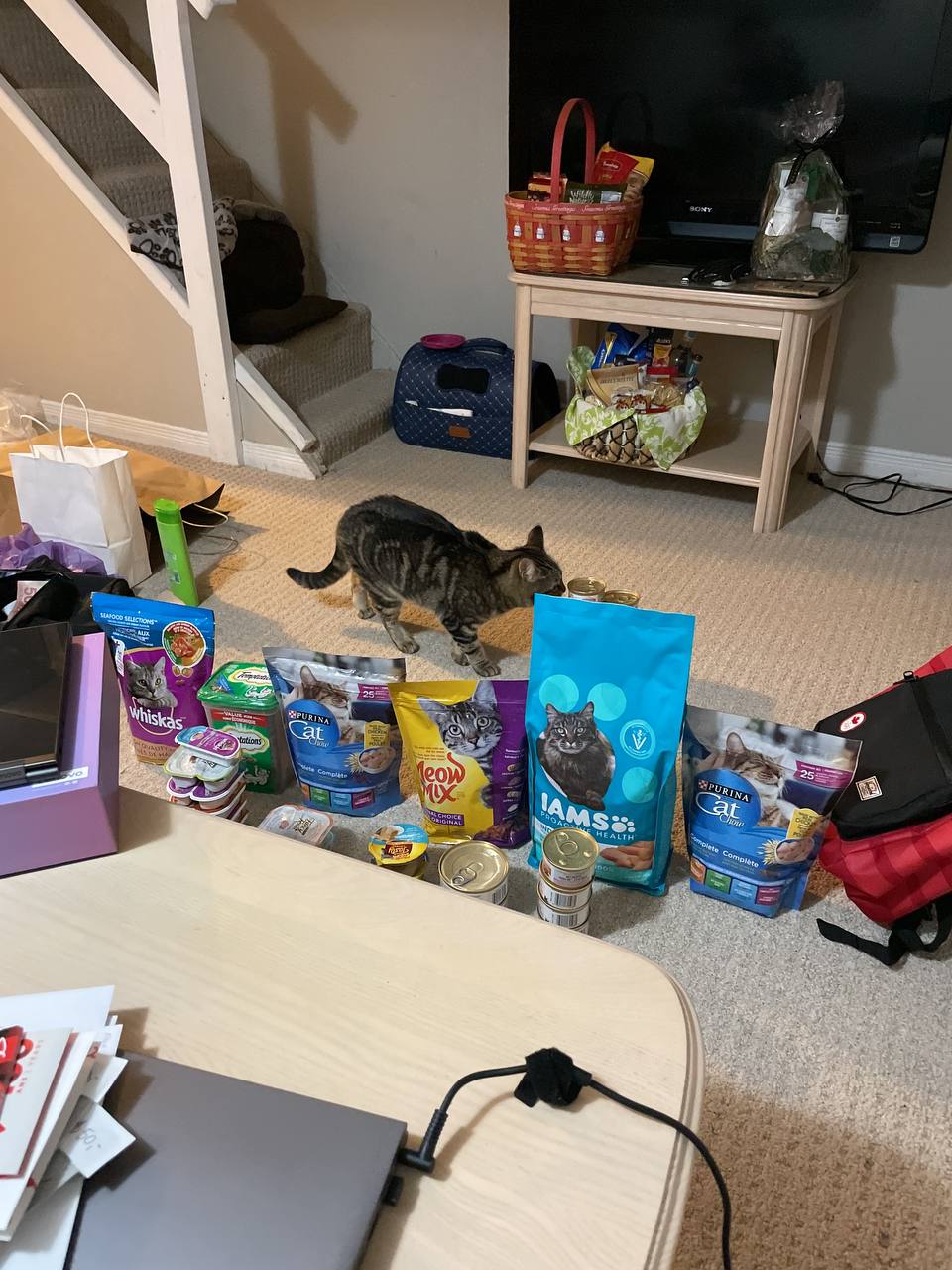
Credit: Viktoriia Kovalenko
When our neighbours learned that I was a stop-motion photographer, they pooled their money together to buy me a new laptop so that I could work and stay in touch with my family. I was so grateful for this unexpected gesture. We stayed with our host family for four months while we slowly tried to build back a semblance of a normal life. When we moved out into a new flat in mid-August, we decided to pay our host family a small amount to show our gratitude for everything they had done for us. We knew it would never be enough for all the ways in which they supported us, but it was important to us to share with them what we had. In fact, without the kindness of countless strangers from around the world since we left Kharkiv, we would not have survived. We are eternally grateful that they made it possible for us to live a normal life again.
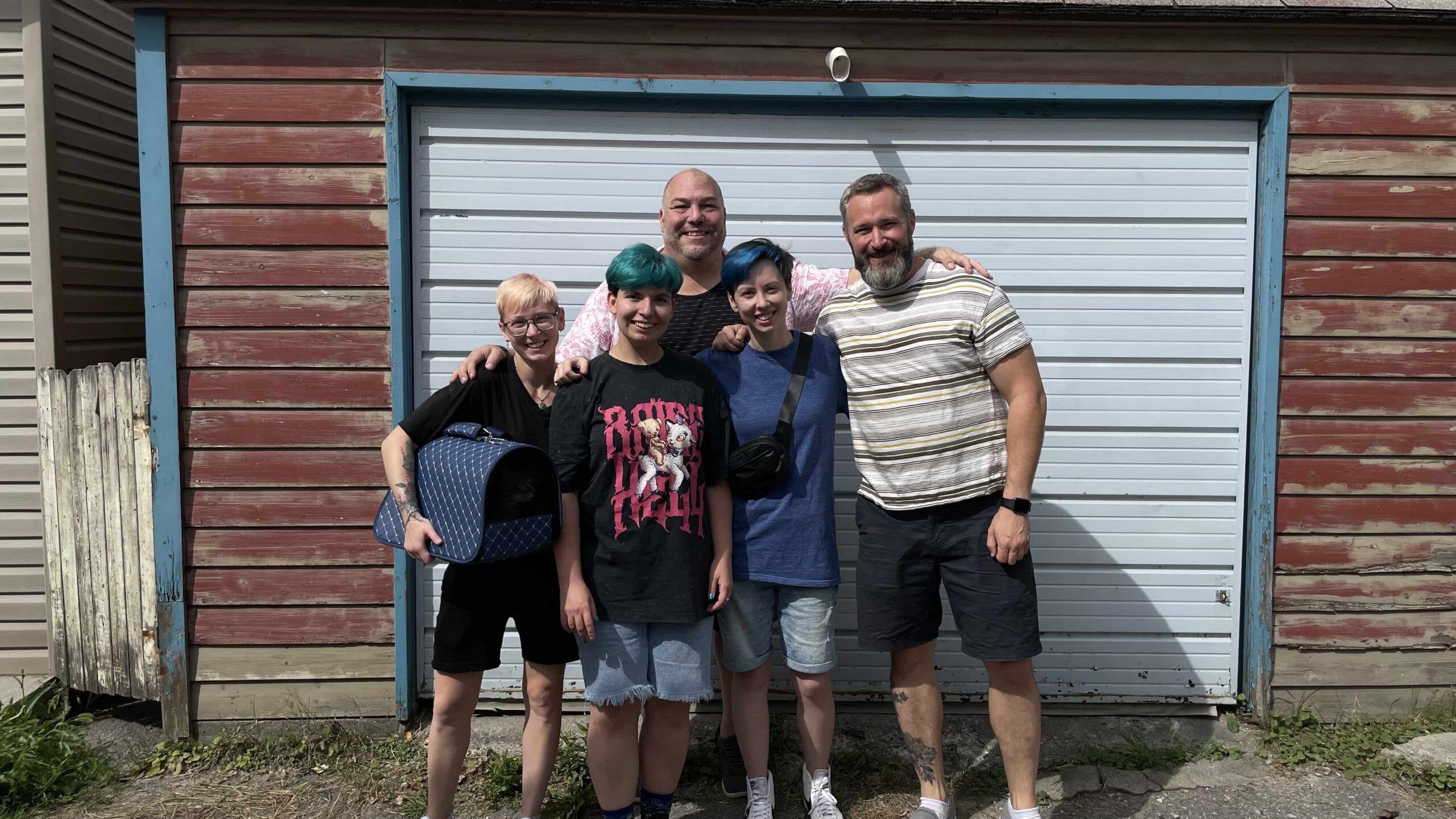
Credit: Courtesy of Viktoriia Kovalenko
After surviving this harrowing ordeal, we found joy in the simplest things. During our first moments in our new Toronto flat, we enjoyed looking out of our windows, a luxury we were deprived of during our months of living in a basement. I missed seeing peaceful scenes outside with blue skies and quiet. After all, the last time I looked out of a flat’s window, I was looking at a tank.
Slowly, life took on a more normal shape. I resumed posting on my photography Instagram page and started learning English. These days, I go around Toronto offering PWYC photography services for queer weddings, private photo sessions and anything else the queer community needs. I don’t have a fixed price yet, because what I most need now is to feel that despite everything I have been through, life can still go on. And as I return to the routine of photography, I can grasp small mundane moments that prove to me I don’t need to be stuck inside the trauma of war.
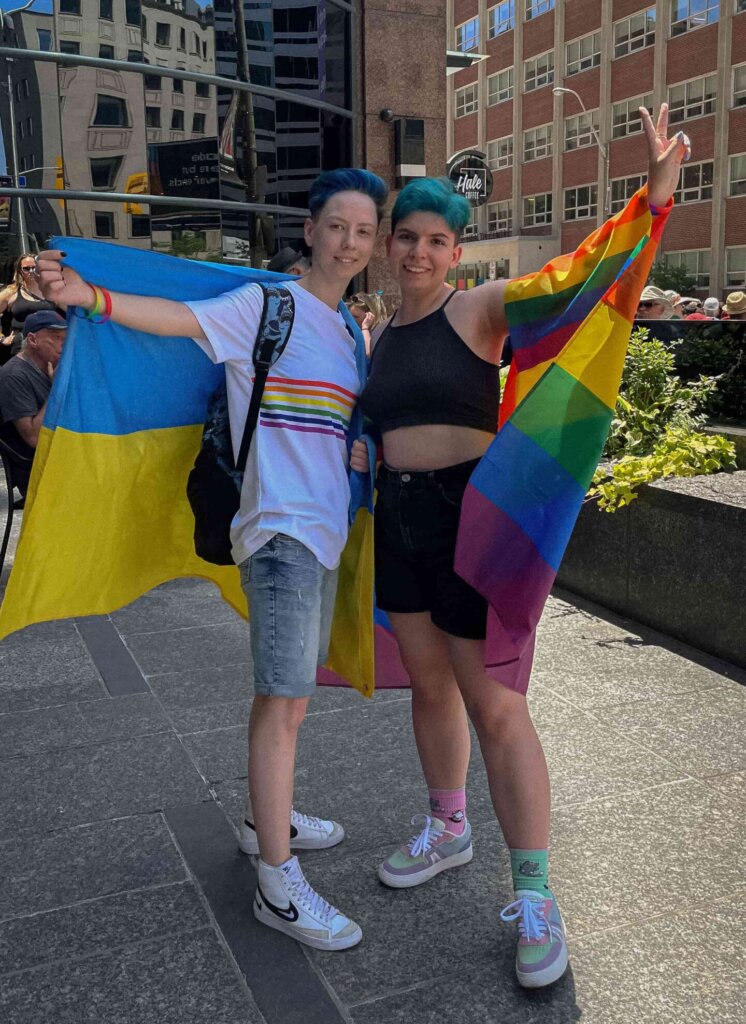
Credit: Courtesy of Viktoriia Kovalenko
I am thankful to Canada for welcoming us with open arms and for helping us. Here, I don’t have to hide who I love or hide that I am a refugee. Even if my English is poor, people are still open to interact with me and meet me halfway. It’s comforting to know that despite not knowing the language well, I know that my voice can still be heard. I will never be able to forget what I went through in the war and will never be tired of raising awareness about the ongoing conflict. But, given the circumstances, I am grateful to be in one of the best places I can be.
This diary is based on an edited interview with Diamond Yao.
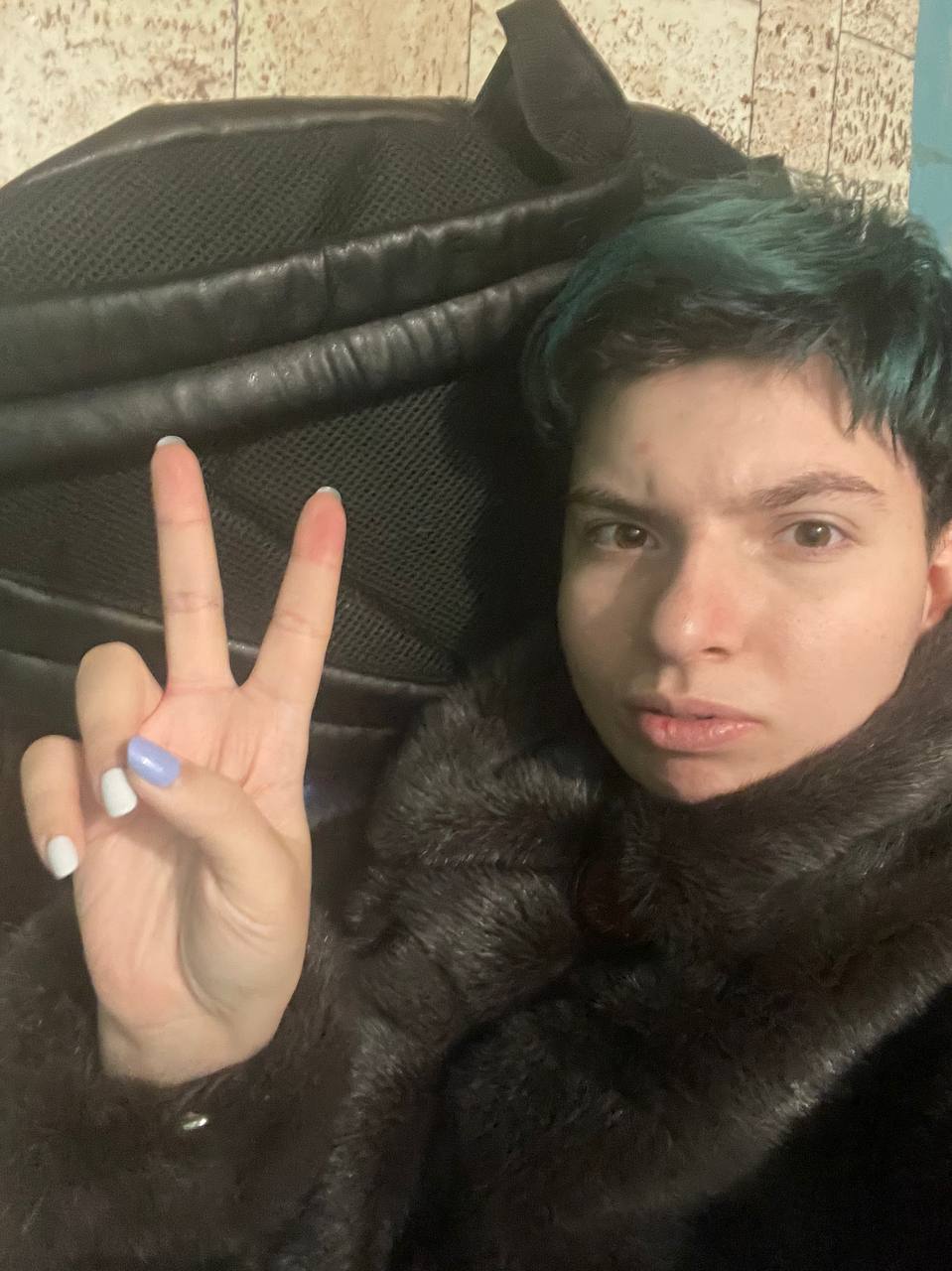
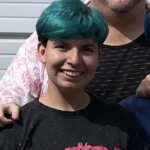
 Why you can trust Xtra
Why you can trust Xtra


